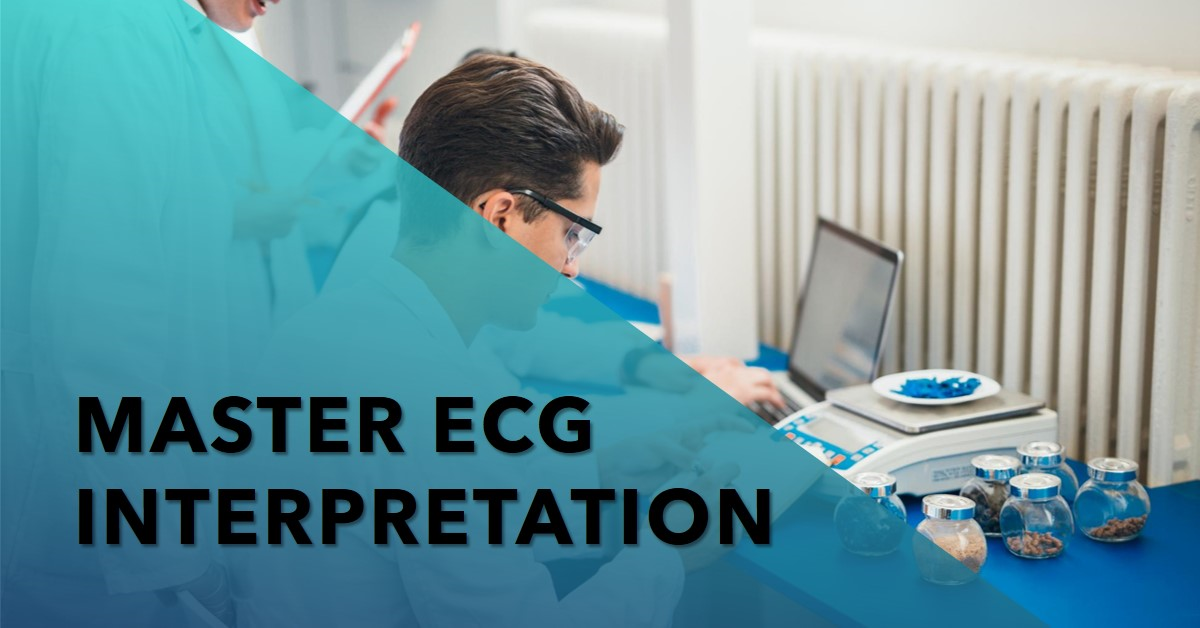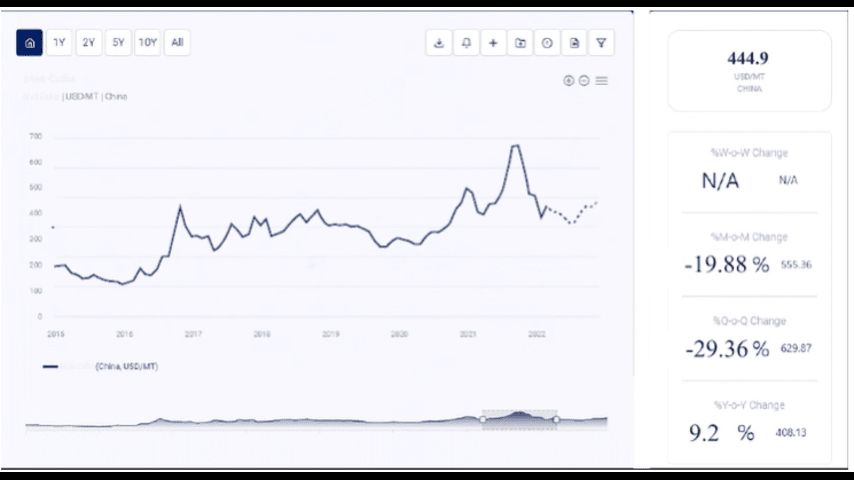Electrocardiogram (ECG) interpretation is a critical skill for medical students and professionals across various specialties. ECGs are invaluable diagnostic tools that provide crucial insights into cardiac health, helping diagnose arrhythmias, myocardial infarctions, and other heart conditions. However, understanding the nuances of ECG readings requires in-depth training and hands-on experience. This article delves into the best training resources available for mastering ECG interpretation, tailored specifically to the needs of medical students and professionals.
The Importance of ECG Interpretation
ECGs are widely used across healthcare settings, from emergency rooms to routine checkups. According to a study published in the Journal of Electrocardiology, around 300 million ECGs are performed annually across the globe, underscoring their significance in diagnosing cardiovascular diseases. Mastering ECG interpretation allows healthcare professionals to make faster, more accurate decisions, potentially saving lives.
Despite its importance, ECG interpretation can be challenging, especially for beginners. Inadequate understanding can lead to misinterpretation, missed diagnoses, or incorrect treatments. For medical students and professionals, a comprehensive approach to learning ECG interpretation is essential. For those in the Bangalore area, finding an ECG test near Bangalore can provide practical experience and enhance understanding.
Top Training Resources for ECG Interpretation
There are numerous resources available, from textbooks to online platforms and practical workshops, to help medical students and professionals become proficient in ECG interpretation.
1. Textbooks and Guides
Textbooks have long been foundational tools for learning ECG interpretation. Some of the most highly recommended include:
- “The ECG Made Easy” by John Hampton: This classic textbook simplifies ECG interpretation for beginners. Its concise explanations, diagrams, and examples make it an excellent starting point for medical students.
- “Rapid Interpretation of EKG’s” by Dale Dubin: Often praised for its user-friendly approach, this guide explains complex concepts in a digestible format, making it popular among both students and professionals.
- “ECG Workout: Exercises in Arrhythmia Interpretation” by Jane Huff: This workbook is particularly useful for hands-on practice, offering hundreds of practice questions, case studies, and rhythm strips.
2. Online Courses and Platforms
Online courses provide the flexibility to learn at your own pace while offering interactive learning experiences. Some of the best platforms include:
- ECG Academy: Created by Dr. Nicholas Tullo, this platform offers tiered learning from beginner to advanced ECG interpretation. It features video tutorials, case studies, and quizzes to reinforce learning. Medical professionals appreciate its focus on real-life applications.
- Coursera – ECG Assessment: Offered by Stanford University, this course teaches the fundamentals of ECG interpretation and arrhythmia detection. It’s a structured course with certifications, making it appealing for students and professionals looking to enhance their credentials.
- SkillStat ECG Essentials: Known for its comprehensive training modules, this platform offers in-depth lessons on both basic and advanced ECG concepts. The combination of theory and practical quizzes helps medical professionals build strong ECG interpretation skills.
3. Hands-On Workshops and Simulations
Many medical students and professionals benefit from hands-on training sessions. ECG interpretation workshops often include practical exercises, case studies, and simulations. Some top institutions offering such training include:
- American College of Cardiology (ACC): The ACC offers live and virtual workshops that include case-based learning, ECG quizzes, and expert-led discussions. These workshops are tailored to healthcare providers across various stages of their careers.
- Heart Rhythm Society (HRS): The HRS runs advanced ECG workshops focusing on arrhythmias and electrophysiology, providing medical professionals with hands-on exposure to real-world scenarios.
- Medical Conferences and Seminars: Conferences such as the Annual American Heart Association (AHA) Scientific Sessions and European Society of Cardiology (ESC) Congress often host ECG workshops. Attending these events provides professionals with updated knowledge and practical experience.
4. Mobile Apps and Digital Tools
In recent years, mobile apps have emerged as valuable tools for quick learning and reference. Some of the top apps include:
- ECG Guide: This app features over 200 real-life ECG cases with explanations and quizzes, making it perfect for on-the-go learning.
- QxMD ECG Guide: Widely used by both students and professionals, this app offers a comprehensive library of ECG cases, detailed explanations, and visual aids.
- AliveCor’s Kardia App: While designed for patient use, medical professionals can use it to track and analyze ECG readings in real-time, providing practical insight into rhythm disturbances.
5. Peer Learning and Mentorship
While structured learning is important, mentorship and peer collaboration are invaluable when mastering ECG interpretation. Study groups, peer-reviewed cases, and discussions with experienced colleagues can greatly enhance understanding. Many medical schools encourage students to participate in clinical rotations, where supervised ECG interpretation is part of patient care.
For medical professionals in Bangalore and surrounding areas, Ecotown Diagnostics provides reliable ECG testing services, giving students and professionals the opportunity to interpret real-world ECG data under expert supervision. This is particularly useful for those seeking hands-on experience with ECG interpretation in a clinical setting.
The Role of Continuous Education
ECG interpretation is not a one-time learning process; it requires continuous practice and education. As medical knowledge advances, new ECG patterns and arrhythmias are identified. Therefore, enrolling in refresher courses, attending workshops, and keeping up with the latest research through medical journals is critical for professionals who want to remain proficient in this essential skill.
FAQs
1. What is the best starting point for learning ECG interpretation?
For beginners, starting with textbooks like The ECG Made Easy or online platforms like ECG Academy provides a solid foundation in the basics.
2. Are there any free resources for mastering ECG interpretation?
Yes, platforms like Coursera and Khan Academy offer free courses on ECG basics, though some may charge for certifications.
3. How long does it take to master ECG interpretation?
Mastery depends on the individual’s dedication and practice, but with consistent effort, most students become proficient within a few months of focused study.
4. Can I practice ECG interpretation on my phone?
Yes, there are numerous apps like ECG Guide and AliveCor’s Kardia that provide real-time ECG cases and quizzes for practice.
5. Where can I get hands-on experience with real ECG data?
For medical students and professionals near Bangalore, Ecotown Diagnostics offers opportunities to interpret ECG results in a clinical setting.
Conclusion
ECG interpretation is an essential skill for medical students and professionals alike. Mastering it requires a mix of theoretical learning, practical experience, and ongoing education. With a wide range of resources available, from textbooks and online courses to hands-on workshops, students and professionals can choose the best learning method that suits their needs. As healthcare technology advances, continuous learning in ECG interpretation will ensure that medical professionals stay at the forefront of patient care. Are you ready to elevate your ECG interpretation skills to the next level?
Also know Essential Training for Medical Professionals at CT Scan Centres









